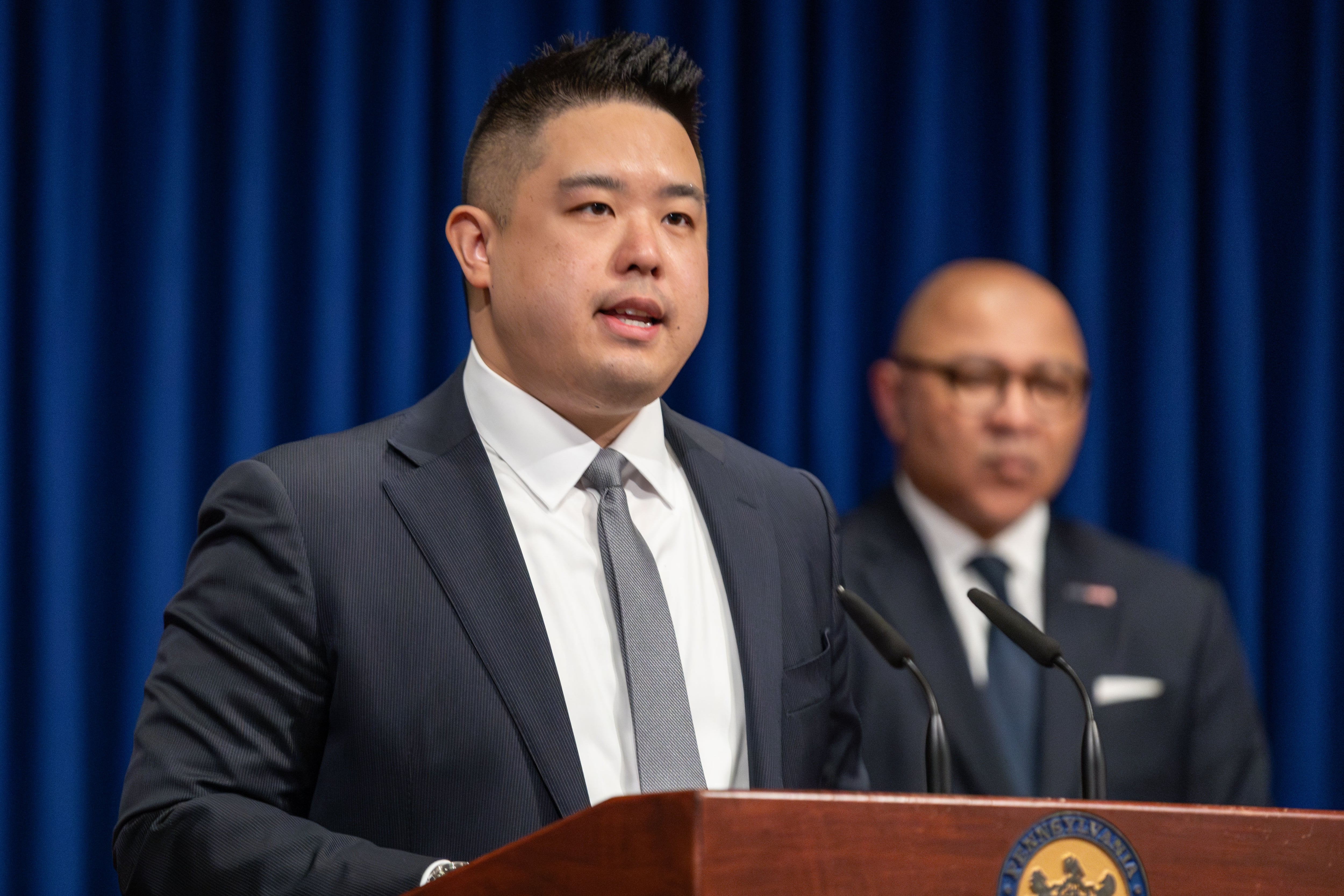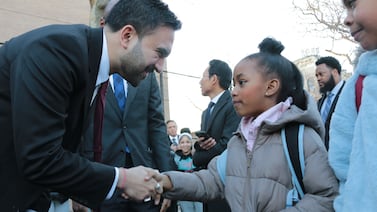Sign up for Chalkbeat Philadelphia’s free newsletter to keep up with the city’s public school system.
Amid charges from some advocates and City Council members that the Philadelphia school board is biased against Black-run charter schools, Pennsylvania’s Auditor General has found that Philadelphia’s authorizing, evaluation, and renewal process complies with all relevant state laws, regulations, and guidelines.
The audit, released Tuesday, highlighted some areas for improvement, but did not raise concern about discriminatory practices. The purpose of the audit was not to explicitly respond to or investigate the allegations of racial bias.
At a press conference, Auditor General Timothy DeFoor said the audit represented “good news to share” because the Charter Schools Office “complied with all state laws and guidance, as well as its own internal processes regarding new applications.”
He also said that it was “important to note that the school board, not the charter schools office,” approves new charter school applications.
The audit scrutinized the procedures followed by the Charter Schools Office for the academic years 2022 and 2023, a period that saw seven new charter applications, none of which were approved, and four charter closures. Two of those closed had Black leadership. It also reviewed the October 2023 investigative report by the Ballard Spahr law firm into the allegations of racial bias. That report found no “intentional bias” in the authorizing and evaluation process, while calling the rate of closure of Black-led charters “concerning.”
The state audit said the office could make some improvements to its Charter School Performance Framework, such as including the responses of charter operators to its findings in the evaluations it makes public, and better monitoring of charter school admissions practices.
In explaining that recommendation, DeFoor cited the problems with Franklin Towne Charter High School, where an investigation found it had excluded students who live in certain ZIP codes with mostly Black students, “in violation of the charter school law and its own charter.”
While the 80-page audit mentions the Ballard Spahr report, it does not describe any independent investigative findings of its own on the topic of racial considerations or bias on the part of the charter schools office.
On the principle that “the oversight body and management should demonstrate a commitment to integrity and ethical values,” the audit found “no issues.”
Last week, city council approved eight of Mayor Cherelle Parker’s nine appointees to the Board of Education, which has direct control over charter school monitoring through its Charter Schools Office. It declined to vote on the nomination of former board president Joyce Wilkerson after charter school advocates mounted a letter-writing campaign against her. Council president Kenyatta Johnson gave no explanation for refusing to consider her nomination except that she “didn’t have the votes.”
During questioning of the nominees, Council member Isaiah Thomas, chair of the education committee, raised angry allegations about bias against Black-led charters, which he said have been closed at a disproportionately higher rate than others. In response, board president Reginald Streater, who had also briefly been the target of the charter advocates, told council that the charter schools office followed all applicable laws and procedures.
Parker then did an end run around council by declining to appoint anyone to replace Wilkerson and announcing that she would continue serving on the board. In response, Thomas said he will convene hearings on whether the city should move to an elected or partially-elected school board, as is done in several other cities.
Peng Chao, the chief of the charter schools office, appeared with DeFoor at the press conference in Harrisburg Tuesday. He said he was “pleased the Auditor General found that our office complied with all applicable legal requirements … in Philadelphia we have a robust evaluation system that … holds all charter schools to the same set of performance standards to foster high-quality education options and improvement outcomes for all of our students.”
Saying “there is no perfect system,” he noted that “a strong system is self-reflective.” The office will “continue to learn, reassess and develop best practices as the landscape of public education evolves.”
A spokesperson for Thomas said they wanted to study the report more before responding.
Dale Mezzacappa is a senior writer for Chalkbeat Philadelphia, where she covers K-12 schools and early childhood education in Philadelphia. Contact Dale at dmezzacappa@chalkbeat.org.






